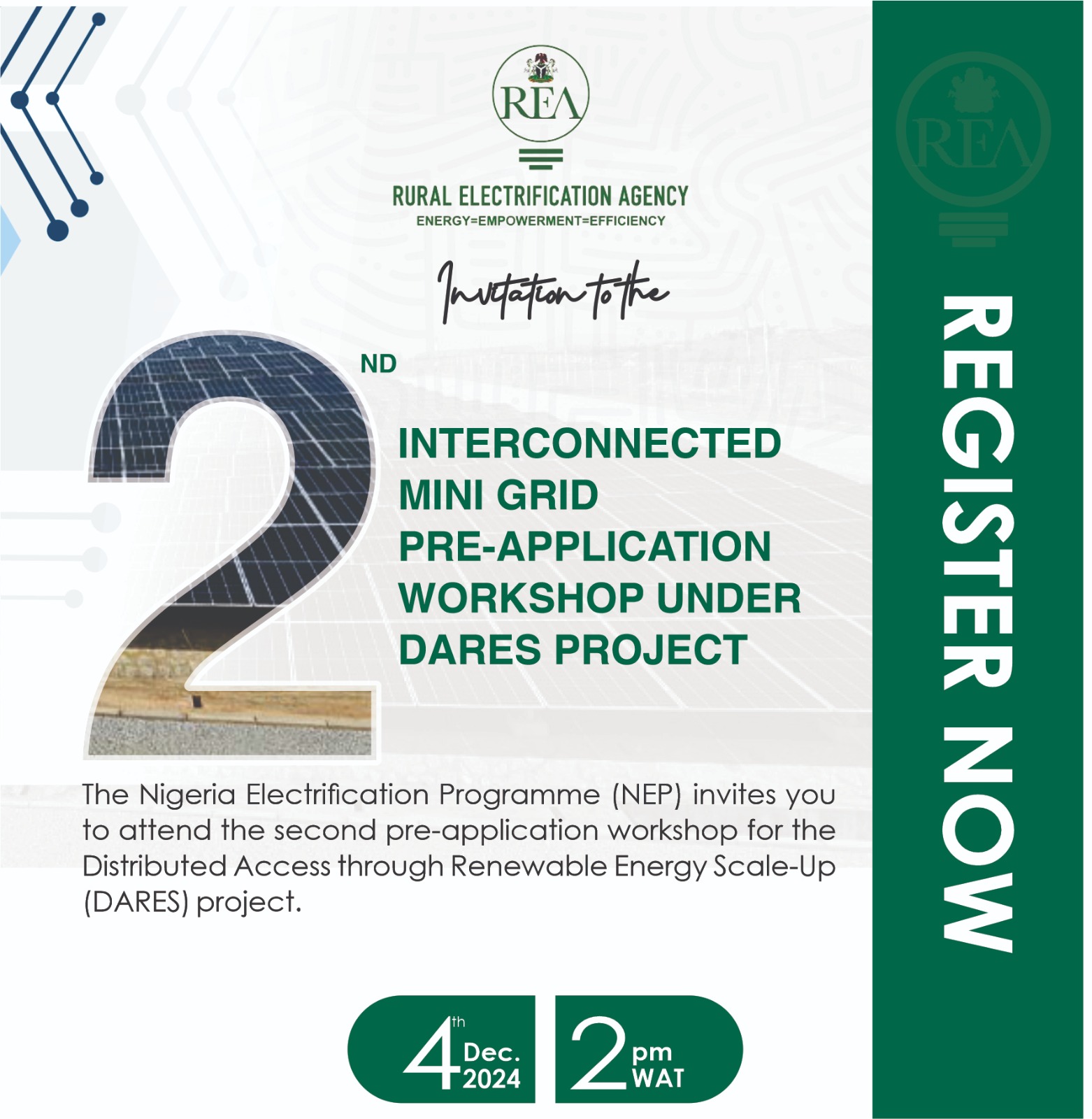
DARES-MST INTERCONNECTED MINI-GRID PRE-APPLICATION WORKSHOP
In a well-attended virtual event held on December 4, 2024, the MST Interconnected Mini-Grid Pre-Application Workshop brought together stakeholders and potential applicants in a bid to foster collaboration and ensure transparency in the ongoing procurement process for the development of interconnected mini-grids in Nigeria. The workshop, hosted by the Nigeria Electrification Programme (NEP) under the Distributed Access through Renewable Energy Scale-Up (DARES) project, was the second and final pre-application meeting, following the initial session held on the 6th of November, 2024.
Femi Akinyelure, the Head of the Nigeria Electrification Programme (NEP), opened the session by emphasizing the importance of collaboration and technical precision in achieving successful project outcomes. He highlighted the pivotal role of transparency in the procurement process, ensuring that companies with the requisite technical and financial capacity can participate fairly. “Our goal is to simplify the process while maintaining the integrity of the timeline, ensuring we achieve the desired outcomes,” Akinyelure noted.
The workshop delved into the specifics of the interconnected mini-grid projects, with Engr. Paul, Project Manger for the Minimum Subsidy Tender (MST) subcomponent, providing a detailed overview. He explained that these mini-grids target urban and peri-urban areas where electricity supply is currently underserved despite existing grid connections. The interconnected mini-grid model offers a high potential for revenue generation, estimated to range between five to twenty times more than isolated mini-grids, and aims to improve the Levelized Cost of Energy (LCOE) by supplementing supply from Distribution Companies (Discos).
Engr. Paul outlined the ambitious goal of deploying 125 interconnected mini-grids under two financing mechanisms: Performance-Based Grants (PBGs) and the Minimum Subsidy Tender (MST). For now, the focus is on the MST, which adopts a reverse auction model to maximize project value through a Capex-based subsidy. The projects are to be implemented in collaboration with Discos, ensuring secured access and fast-tracked approvals facilitated by the Nigerian Electricity Regulatory Commission (NERC).
A key highlight of the workshop was the series of incentives offered to developers. These include grant funding to reduce project costs, data-backed studies such as load profiling and environmental assessments, and streamlined collaboration with Discos. Additionally, Engr. Paul reassured participants of NERC’s commitment to expediting approvals, which will significantly enhance the pace of project implementation.
Another key highlights of the workshop was the update on the procurement plan for the Minimum Subsidy Tender (MST). The Issuance of Specific Documentation (ISD) notice, initially sent out on November 4, has been revised. Participants were informed that an addendum to the ISD will be issued on December 6, extending the submission deadline from six weeks to nine weeks. The new deadline is now set for January 6, 2025. This extension follows careful internal reviews and feedback from stakeholders. Despite the adjusted timeline, the Request for Proposal (RFP) remains scheduled for February 2025.
Participants engaged actively during the Q&A session, seeking clarifications and offering feedback on the proposed frameworks. This robust interaction demonstrated the strong interest and readiness of stakeholders to align with NEP’s vision for enhanced electricity access in Nigeria.
The MST Interconnected Mini-Grid initiative represents a significant step toward closing Nigeria’s energy access gap while promoting sustainable and innovative solutions. As the application phase begins, stakeholders are encouraged to leverage the support mechanisms provided by NEP to drive impactful and scalable energy projects.


